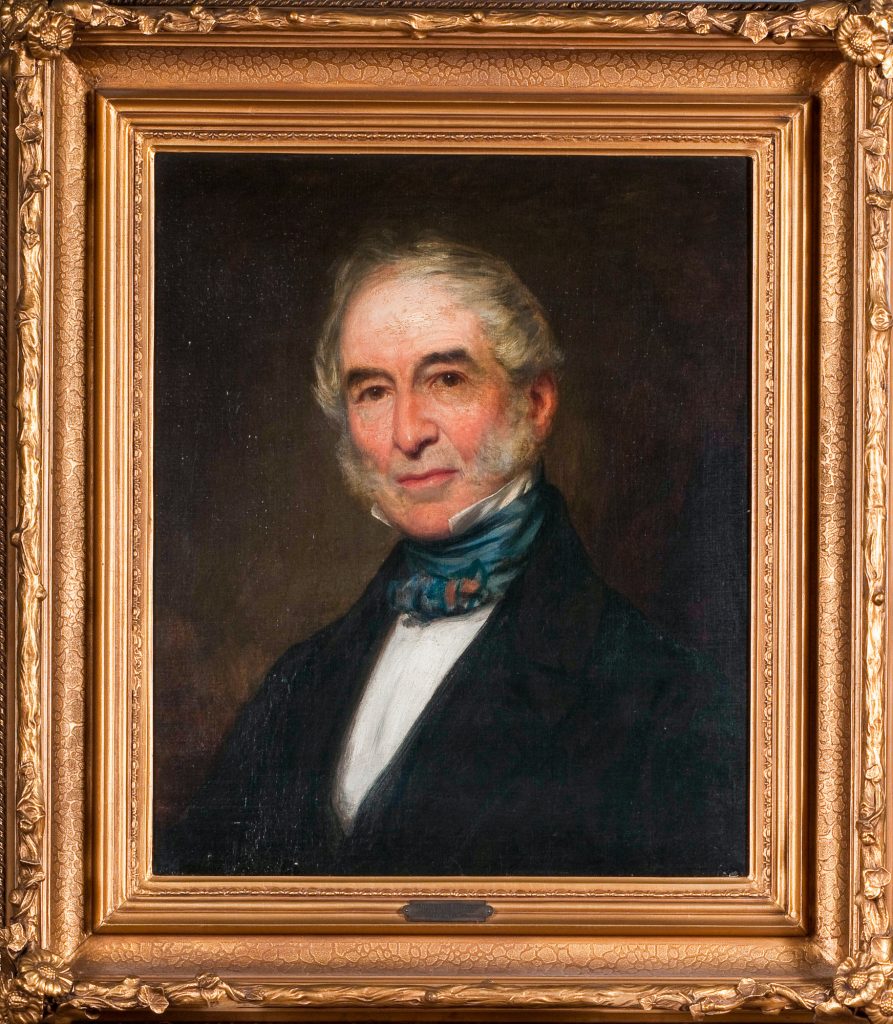Joseph was among the youngest of the many children born to Michael and Miriam Simon Gratz of Philadelphia, a brood that included older siblings Frances, Rachel, Rebecca, and younger brother Benjamin. Joseph would come to be known as the most charming and loquacious of all the Gratz brothers and according to Miriam Etting Joseph, “the handsomest of the flock.”
At twenty-three Joseph joined the First Troop Philadelphia City Cavalry, something of a club for the city’s affluent young men, which even after the outbreak of the War of 1812 confined itself largely to ceremonial duties. But in 1814, with news of the British burning of Washington and a growing fear that Philadelphia might be next, the city sprung to action: the Committee of Defense was formed, fortifications built, the militia activated, and the First Troop assigned to reconnaissance in Maryland, where the front now was located. Encamped at Fort Bull, for months the First Troop communicated with Philadelphia, serving as the city’s main source of news.
After the war’s conclusion, Joseph resigned from the First Troop. He worked with his older brothers’ firm, S&H Gratz—Simon and Hyman—while also pursuing independent business concerns and entering into his own trading partnerships. As the brother who most enjoyed travel, he often took business trips as a representative of the family. On several occasions he travelled to Europe—Hamburg, Leipzig, even Gibraltar.
In 1819, accompanied by a friend, William Meredith, Joseph travelled for several months on horseback through upstate Pennsylvania and New York, checking up on Gratz family holdings, some of his own, and looking into new lands he hoped to acquire. Joseph wrote frequently to Rebecca on this journey, describing how the lands were being developed, the lives of the tenants, and sights and sounds of Chemung River, Lake Ontario, Fort Erie and Saratoga Springs. From a tavern in Rochester, he described the beauty of Niagara Falls, insisting that he would bring Rebecca there the following year. When he returned to Philadelphia, he opened a counting house on South 8th Street, a dry goods warehouse at Seventh and Market, and later a shop on Front Street, which sold gunpowder, textiles, and Asian imports.
Armed with charm and wit, Joseph became a fixture in Philadelphia’s fashionable circles. He joined the Masons, the exclusive Philadelphia Club, and the Athenaeum of Philadelphia, a membership library. It was, no doubt, Joseph’s sophistication, social graces, sense of humor and of adventure that made him Rebecca’s favorite companion. They both counted Washington Irving as a friend, and travelled frequently together to Saratoga Springs and New York City and the New Jersey shore.
But it was not all leisure and luxury for Joseph. He was involved with a number of philanthropic causes and Jewish communal life. He was a member of congregation Mikveh Israel, which found itself in need of a building in 1818. The old synagogue, made to hold 200 people was inadequate for the current size of the congregation. Joseph, joined by Jacob I. Cohen, Simon Gratz and John Moss among others, comprised the building committee, who took it upon themselves to raise the necessary funds. The Gratz siblings alone came up with $2,000. They solicited money not only from Philadelphia’s Jewish community, but from Jews around the country, managing to get a $300 pledge from Judah Touro in 1824. The following year the new building on Cherry Street was complete.
Joseph served on the board of directors of David G. Seixas’ Pennsylvania Institution for the Deaf and Dumb, which opened in 1820. The following year, he joined the board of managers of the newly founded Apprentices Library, a lending library with collections geared toward the needs and interests of tradesmen. Joseph would serve on the board of Mikveh Israel for many years, accompanied there by his brothers Simon, Hyman, and Jacob.
Joseph never married and lived throughout his life with his other unmarried siblings, Rebecca, Jacob and Sarah. When he died in October in 1858, Isaac Leeser ran his shiva.
